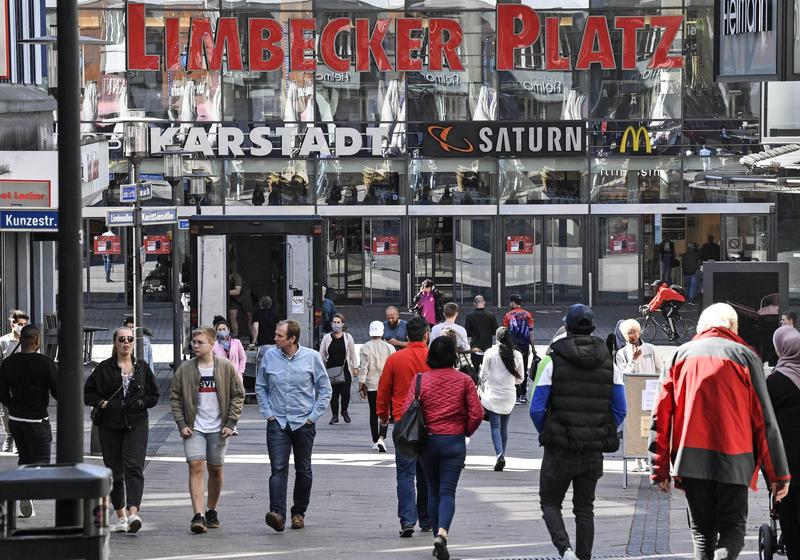 People walk to a shopping center as many smaller stores are allowed to open in Essen, Germany, April 20, 2020. Europe's biggest economy, starts reopening some of its stores and factories after weeks of lockdown due to the new coronavirus outbreak. (MARTIN MEISSNER / AP)
People walk to a shopping center as many smaller stores are allowed to open in Essen, Germany, April 20, 2020. Europe's biggest economy, starts reopening some of its stores and factories after weeks of lockdown due to the new coronavirus outbreak. (MARTIN MEISSNER / AP)
BEIJING — The World Health Organization warned on Tuesday that any lifting of lockdowns to contain the spread of the novel coronavirus must be gradual, and if restrictions were to be relaxed too soon, there would be a resurgence of infections.
At least until a vaccine, or a very effective treatment, is found, this process will need to become our new normal
Takeshi Kasai, WHO Regional Director for the Western Pacific
Lockdown measures have proved effective, and people must be ready for a new way of living to allow society to function while the coronavirus is being kept in check, said Takeshi Kasai, WHO Regional Director for the Western Pacific.
ALSO READ: Merkel warns of virus-relapse risk as Germany eases curbs
We must adapt our lives and health systems along with the epidemic, Kasai told an online press conference.
“At least until a vaccine, or a very effective treatment, is found, this process will need to become our new normal.”
Governments considering lifting lockdown measures should do so carefully and in stages, and continue to monitor the epidemic situation, he said. So long as the coronavirus is circulating, no country is safe from a potentially overwhelming outbreak, he said.
“Individuals and society need to be ready for a new way of living,” he said.
While the Western Pacific has in recent weeks been much less hard hit by the epidemic than the United States or Europe, there has been an increase in cases in Japan and Singapore, among other countries.
READ MORE: Turkey declares 4-day lockdown as cases soar past 90,000
Kasai also warned that the epidemic must not disrupt vaccination programmes against other diseases like polio, measles and rubella. Otherwise the Western Pacific could face a new crisis when health systems are already strained, he said.


